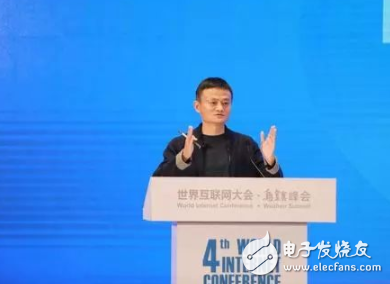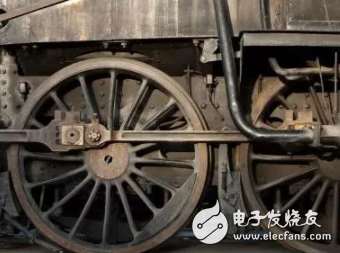What is blockchain, and why has it created such a big wave in the financial industry? As blockchain surges forward, the financial sector is taking action, each player developing their own strategies. Some argue that blockchain is just another bubble, destined to burst. However, despite these doubts, the momentum of blockchain seems unstoppable. What exactly is the real "blockchain wave," and when will it truly arrive?
In November 2016, Ma Yun spoke at the World Internet Conference, saying:
"Over the next 30 years, we will see new technologies deeply integrated into traditional industries. This will be a transformative period for human society. No matter who you are or where you are, all of us will be part of this great change."
Today, no one can escape the influence of emerging technologies, and blockchain is one of them. However, its impact has been more controversial than positive. It has sparked speculative behavior among the public, becoming a tool for some to exploit others. In a way, this promising technology has been misused. For blockchain to truly develop, it needs to move beyond hype, foster patient innovation, and grow through steady progress rather than quick gains. Only then can it bring about real transformation.

So, what is blockchain, and what value does it offer?
Recently, many people have heard of blockchain, but few truly understand it. While various articles discuss its potential across industries, the concept remains confusing. Many describe it with terms like “decentralization,†“trust,†and “immutability,†but without context, these words remain abstract.
Value is best understood through comparison. Take electricity, for example. It drove the Second Industrial Revolution by replacing steam power. Steam engines were bulky, inefficient, and limited in energy transmission. Electricity, on the other hand, could be produced centrally and distributed widely, changing how energy was used and enabling new forms of industrial production.

Similarly, today’s internet-based database systems are centralized and private. They struggle with trust and value transfer, especially in cross-border transactions. Trust is the foundation of economic activity, and solving it requires complex processes and protocols—often leading to inefficiency.
Understanding this, the value of blockchain becomes clearer. Using technologies like consensus algorithms, encryption, and smart contracts, blockchain builds a decentralized system that establishes trust in uncertain environments. This opens up vast opportunities across industries, transforming existing workflows and driving innovation.
Now that we’ve explored its value, let’s define what blockchain really is.
The term "blockchain" originated from Bitcoin. In the Bitcoin whitepaper, Satoshi Nakamoto referred to it as a "chain of blocks," describing the data structure storing transaction records. Initially, it only referred to Bitcoin’s transaction ledger. Later, other cryptocurrencies adopted the term, and by 2015, institutions began recognizing blockchain as a broader technological framework, separating it from just virtual currency applications.
In simple terms, a blockchain is a data structure made up of linked blocks, each containing encrypted data. Each block references the hash of the previous one, creating a chain-like structure. Any attempt to alter data would break the chain, ensuring security and immutability.
As for concepts like consensus mechanisms, smart contracts, lightning networks, and side chains, they are all components of the broader blockchain ecosystem. If you're interested, there's much to explore and learn about each of them.
220W Medical Adapter,220W Medical Outlet Adapter,220W Medical Ivd Adapter,220W Breast Pump Adapter
Shenzhen Longxc Power Supply Co., Ltd , https://www.longxcpower.com
